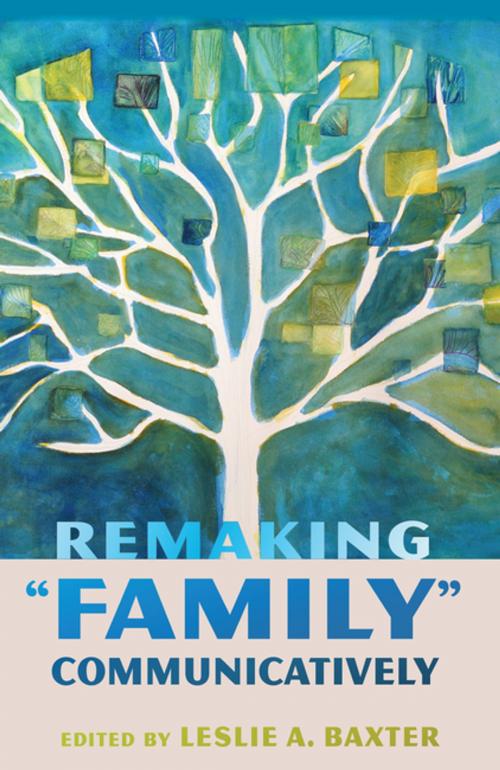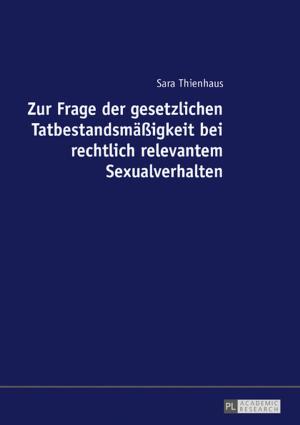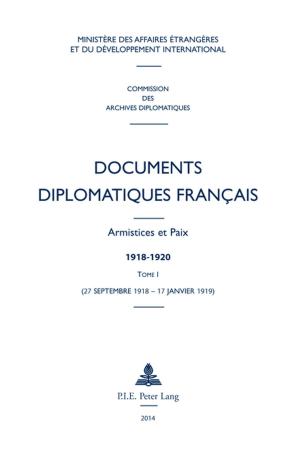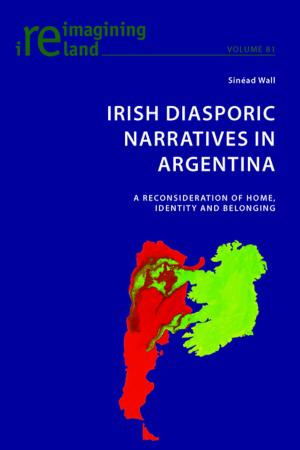Remaking «Family» Communicatively
Nonfiction, Reference & Language, Language Arts, Communication, Health & Well Being, Psychology, Applied Psychology, Social & Cultural Studies, Social Science, Sociology| Author: | ISBN: | 9781454190639 | |
| Publisher: | Peter Lang | Publication: | May 1, 2014 |
| Imprint: | Peter Lang Inc., International Academic Publishers | Language: | English |
| Author: | |
| ISBN: | 9781454190639 |
| Publisher: | Peter Lang |
| Publication: | May 1, 2014 |
| Imprint: | Peter Lang Inc., International Academic Publishers |
| Language: | English |
Demographers have repeatedly confirmed that the nuclear family is on the decline. Yet when Americans are asked about their ideal family, the nuclear family emerges as the most valued kind of family. Members of families that do not match this cultural ideal face a discursive burden to legitimate their identity as a «family.»
This volume gathers together communication scholars who are working on the many kinds of alternative family forms, from, among others, grandfamilies, diasporic immigrant families, and military families to in (voluntarily) childless families and stepfamilies.
The organizing question for the volume focuses on resistance, reconstruction, and resilience: how is it that alternatives to the traditional family are constructed and sustained through communicative practices? Several chapters adopt a global perspective, thereby framing the issue of legitimation of «family» in a broader cultural context.
None of the family forms described in this volume meets the ideological «gold standard” of the nuclear family, and in this sense they all represent a remaking of the family in profound ways.
Demographers have repeatedly confirmed that the nuclear family is on the decline. Yet when Americans are asked about their ideal family, the nuclear family emerges as the most valued kind of family. Members of families that do not match this cultural ideal face a discursive burden to legitimate their identity as a «family.»
This volume gathers together communication scholars who are working on the many kinds of alternative family forms, from, among others, grandfamilies, diasporic immigrant families, and military families to in (voluntarily) childless families and stepfamilies.
The organizing question for the volume focuses on resistance, reconstruction, and resilience: how is it that alternatives to the traditional family are constructed and sustained through communicative practices? Several chapters adopt a global perspective, thereby framing the issue of legitimation of «family» in a broader cultural context.
None of the family forms described in this volume meets the ideological «gold standard” of the nuclear family, and in this sense they all represent a remaking of the family in profound ways.















